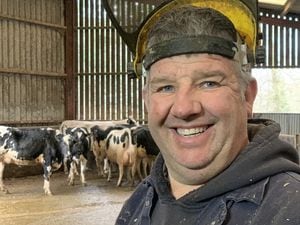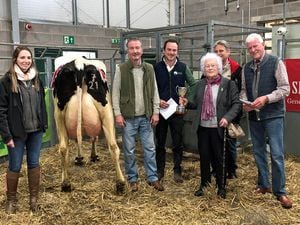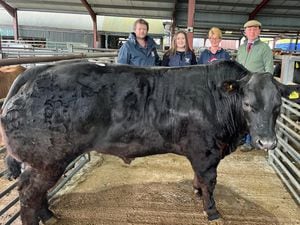Shropshire Farming Talk: Dancing with daffodils
The answer to one of livestock’s biggest challenges, methane production, could be found in a daffodil.

It may not be the most obvious plant for solving the methane issue, but a compound found in daffodils has already been proven to have properties to improve human health having been used for dementia and brain health for several years.
A four-year project titled ‘Dancing with daffodils’, started in June, and is supported by Defra and Innovate UK, and aims to transform the efficiency and sustainability of ruminant livestock farming through the development of a novel feed additive, using a specific alkaloid extracted from the plant.
Bangor University has already undertaken preliminary lab work which has shown positive results.
The best outcome for the project is to replicate the results that have been seen in the lab, which include a reduction in methane production and the rumen working more efficiently improving protein utilisation.
What makes this project so exciting is that the preliminary data estimates that direct methane emissions from ruminants can be significantly reduced and that feed protein utilisation may be improved by up to 50%. This could potentially increase the productivity of the ruminant sectors and drive multiple environmental benefits.
Work is still being done to understand how stable the additive is, but it could be a mineral that goes into a TMR, premix, block, bucket, or all of these.
The partnership organisations involved in the project have the ability to take this research from field to the cow, and are keen to make this commercially viable.
The project consortium is made up of: Rumenco, Agroceutical Products Ltd, Analox Group, Beneve Ltd, Bioextraction Ltd, Bangor University, CIEL (Centre for Innovation Excellence in Livestock), Grampian Growers Ltd, Scotland's Rural College and ourselves.
We are well-positioned as the route-to-market for whatever form the end-product takes and the project aligns with the Wynnstay group's objective of supporting farmers to produce food in a more sustainable way.
To hear more about the project, I recently recorded a podcast with Alison Bond technical services manager at Rumenco. Find it by searching for the Wynnstay Agri-Hub podcast, it’s season three, episode six.
Andrew Evans, Wynnstay’s Group Sustainability, Innovation and Food Supply Chain Director





